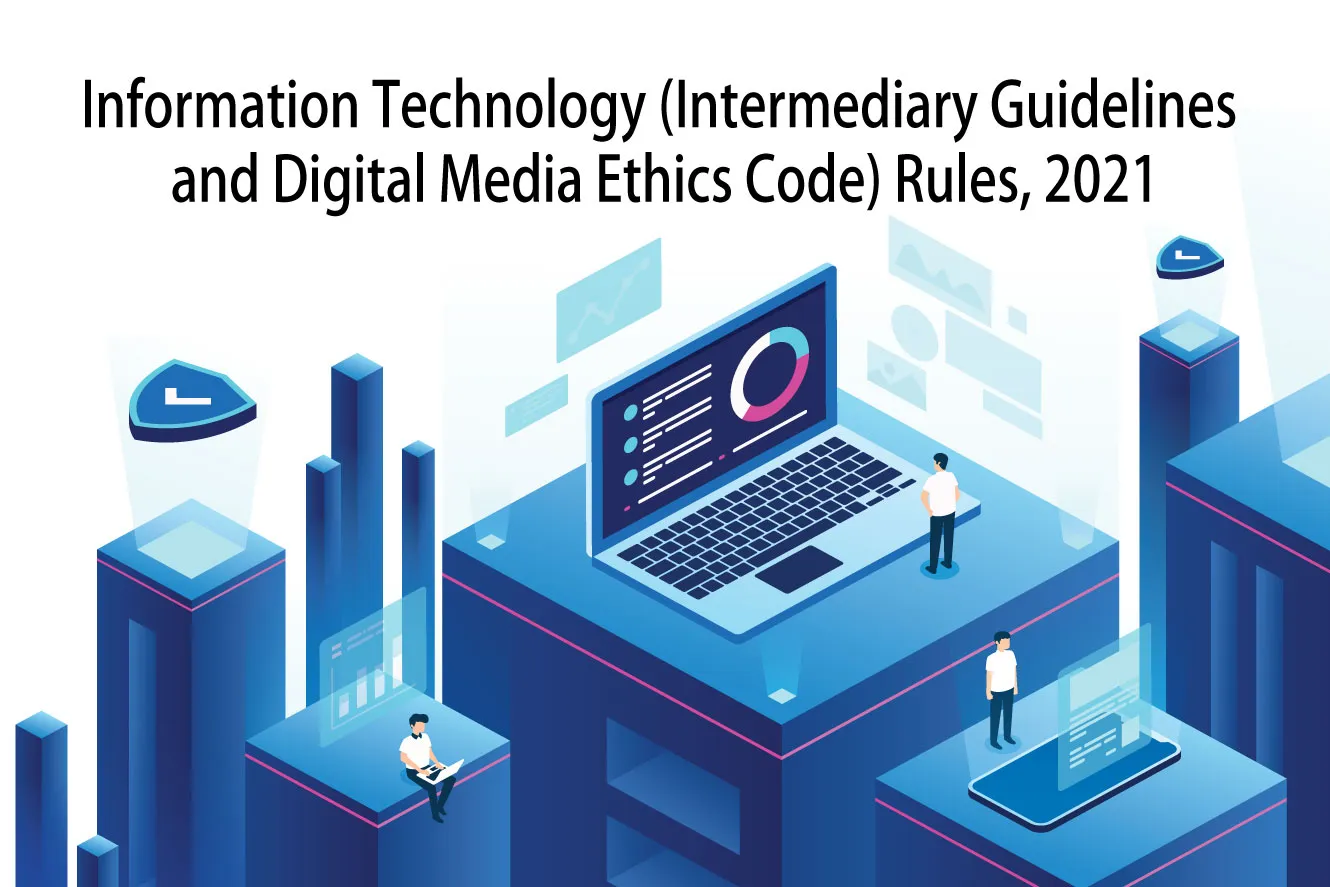Description

Copyright infringement not intended
Context - The Union Ministry of Electronics and Information Technology (MeitY) has released a draft proposal, inviting suggestions from the public about the amendments to the Information Technology (Intermediary Guidelines and Digital Media Ethics Code) Rules, 2021.
About Information Technology (Intermediary Guidelines and Digital Media Ethics Code) Rules, 2021
- The Information Technology (Intermediary Guidelines and Digital Media Ethics Code) Rules, 2021, was notified by the Central government on February 25, 2021, relates to the digital news publishers, including websites, portals and YouTube news channels, and Over The Top (OTT) platforms, which stream online contents such as web series and films.
- It is jointly administered by the Ministry of Electronics and IT, and the Ministry of Information and Broadcasting.
- The Rules provide for a code of ethics to be followed by digital news publishers and OTT platforms; A three-tier grievance redress mechanism, which includes:
- Self-regulation by publishers at the first level
- Self-regulation by Self-regulating bodies of the publishers
- An oversight mechanism by the Central government
Key features of the Rules
- Social media intermediaries, with registered users in India above a notified threshold, have been classified as significant social media intermediaries.
- They are required to appoint certain personnel for compliance, identification of the first originator of the information on its platform, and identify certain types of content.
- They need to appoint a Nodal Contact Person for 24x7 coordination with law enforcement agencies. Such a person shall be a resident in India.
- Appoint a Resident Grievance Officer who shall perform the functions mentioned under the Grievance Redressal Mechanism. Such a person shall be a resident in India.
- Publish a monthly compliance report mentioning the details of complaints received and action taken on the complaints.
- The Rules prescribe a framework for the regulation of content by online publishers of news and current affairs content and audio-visual content.
- A 3 tier Grievance Redressal Mechanism: Social media intermediaries shall appoint a Grievance Officer to deal with complaints and share the name and contact details of such officers.
- The grievance officer shall acknowledge the complaint within twenty-four hours and resolve it within 15 days from its receipt.
- Ensuring Online Safety and Dignity of Users, Especially Women Users: Intermediaries shall remove or disable access within 24 hours of receipt of complaints of contents that expose the privacy of individuals.
- Such a complaint can be filed either by the individual or by any other person on his/her behalf.
- Voluntary User Verification Mechanism: Users who wish to verify their accounts voluntarily shall be provided with an appropriate mechanism to verify their accounts and provided with a demonstrable and visible mark of verification.
- Giving Users An Opportunity to Be Heard: Users must be provided with an adequate and reasonable opportunity to dispute the action taken by the intermediary.
- Removal of Unlawful Information: An intermediary upon receiving actual knowledge should not host or publish any information which is prohibited under any law in relation to the interest of the sovereignty and integrity of India, public order, friendly relations with foreign countries etc.
- This Code of Ethics prescribes the guidelines to be followed by OTT platforms and online news and digital media entities.
- Self-Classification of Content: The OTT platforms would be required to self-classify the content into five age-based categories; U (Universal), U/A 7+, U/A 13+, U/A 16+, and A (Adult).
Concerns
- Intermediaries include telecom service providers, internet service providers, search engines, online marketplaces, payment sites, cyber cafes, messaging services, and social media sites. While many intermediaries are mere storage providers, where they are unaware of the content being transmitted or stored on their platform, other intermediaries may be aware of the user-generated content on their platform. This raises the question that to what extent intermediaries should be held liable for the user-generated content on their platform.
- There are growing concerns around misuse of these platforms for the proliferation of illegal or harmful content such as child sex abuse material, content provoking terrorism, misinformation, hate speech, and voter manipulation.
- Some platforms have been self-regulating the publication of such content. However, this has raised concerns about arbitrary actions taken by these platforms which could affect freedom of speech and expression.
- Certain grounds for restricting content may affect freedom of speech, some of these restrictions are subjective and overbroad, and may adversely affect the freedom of speech and expression of users of intermediary platforms.
- The 2021 Rules do not restrict the extent or type of information that may be sought. For example, the information sought may be personal data of individuals such as details about their interactions with others. Such powers, without adequate safeguards, may adversely affect the privacy of individuals.
- The Rules require significant social media intermediaries, to enable the identification of the first originator of information within India.
- Identifying the first originator of information on a messaging platform will require the service provider to permanently store certain additional information:
- The Rules also do not specify any timeline in terms of how far back in time the messaging service will be required to check for determining the first originator.
- Overall, this requirement will lead to the retention of more personal data by messaging services which goes against the principle of Privacy and Data minimization.
Conclusion: Need to balance our security concerns with Privacy concerns.
https://www.thehindu.com/sci-tech/technology/the-provisions-of-the-withdrawn-draft-on-social-media-regulations/article65500802.ece
1.png)
https://t.me/+hJqMV1O0se03Njk9
















